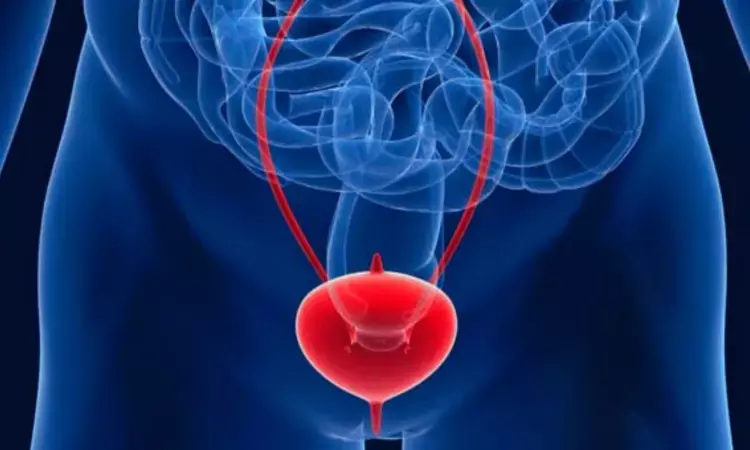- Home
- Medical news & Guidelines
- Anesthesiology
- Cardiology and CTVS
- Critical Care
- Dentistry
- Dermatology
- Diabetes and Endocrinology
- ENT
- Gastroenterology
- Medicine
- Nephrology
- Neurology
- Obstretics-Gynaecology
- Oncology
- Ophthalmology
- Orthopaedics
- Pediatrics-Neonatology
- Psychiatry
- Pulmonology
- Radiology
- Surgery
- Urology
- Laboratory Medicine
- Diet
- Nursing
- Paramedical
- Physiotherapy
- Health news
- Fact Check
- Bone Health Fact Check
- Brain Health Fact Check
- Cancer Related Fact Check
- Child Care Fact Check
- Dental and oral health fact check
- Diabetes and metabolic health fact check
- Diet and Nutrition Fact Check
- Eye and ENT Care Fact Check
- Fitness fact check
- Gut health fact check
- Heart health fact check
- Kidney health fact check
- Medical education fact check
- Men's health fact check
- Respiratory fact check
- Skin and hair care fact check
- Vaccine and Immunization fact check
- Women's health fact check
- AYUSH
- State News
- Andaman and Nicobar Islands
- Andhra Pradesh
- Arunachal Pradesh
- Assam
- Bihar
- Chandigarh
- Chattisgarh
- Dadra and Nagar Haveli
- Daman and Diu
- Delhi
- Goa
- Gujarat
- Haryana
- Himachal Pradesh
- Jammu & Kashmir
- Jharkhand
- Karnataka
- Kerala
- Ladakh
- Lakshadweep
- Madhya Pradesh
- Maharashtra
- Manipur
- Meghalaya
- Mizoram
- Nagaland
- Odisha
- Puducherry
- Punjab
- Rajasthan
- Sikkim
- Tamil Nadu
- Telangana
- Tripura
- Uttar Pradesh
- Uttrakhand
- West Bengal
- Medical Education
- Industry
Childhood Gut and Urinary Disorders May Triple Risk of Interstitial Cystitis in Adulthood: Study Finds

USA: A new retrospective cohort study published in Neurourology and Urodynamics has revealed a significant association between certain childhood health conditions and the likelihood of developing interstitial cystitis (IC) later in life. Conducted by Dr. Mohammad Alipour-Vaezi and colleagues from Virginia Tech, the research analyzed data from the TriNetX US Collaborative Network, which includes health records from over 118 million individuals.
Interstitial cystitis, a chronic bladder disorder marked by pelvic pain, urinary urgency, and frequent urination, continues to pose clinical challenges due to its unclear origins and limited treatment options. In this large-scale investigation, the researchers explored whether early-life diagnoses—specifically gastrointestinal (GI) disorders, urological anomalies (UA), psychiatric disorders (PD), and autoimmune diseases (AD)—influence IC risk in adulthood.
The team established study and control cohorts based on childhood diagnoses and tracked the incidence of IC over a 14-year follow-up period. Statistical tools such as propensity score matching and Kaplan-Meier survival analysis were used to ensure balanced comparisons and robust findings.
The study revealed the following findings:
- Childhood gastrointestinal (GI) and urological anomaly (UA) conditions were significantly linked to a higher risk of developing interstitial cystitis (IC) in adulthood.
- Individuals with childhood irritable bowel syndrome (IBS) had nearly a threefold increased risk of IC (risk ratio 2.9).
- Those with a history of childhood urinary tract infections (UTIs) had more than a threefold higher risk of developing IC (risk ratio 3.2).
- The study identified notable gender differences, with adolescent females showing a higher prevalence of UA and autoimmune diseases (AD), along with a greater risk of IC.
- Individuals with early-life GI and UA conditions also tended to have more comorbidities, indicating a multifactorial pathway in the development of IC.
- These findings suggest that childhood medical history can be a valuable tool in identifying individuals at elevated risk for IC later in life.
The study’s large sample size, drawn from nearly four million patient records, lends credibility to its findings. However, the authors also noted several limitations. These include potential inaccuracies in diagnostic coding within electronic health records, loss of data from patients who left participating healthcare systems, and the rarity of IC itself, which limited the strength of statistical conclusions for certain subgroups, especially those with autoimmune and psychiatric conditions.
Despite these limitations, the findings offer valuable contributions to the understanding of IC. They underscore the importance of early monitoring and intervention for children with GI and urological disorders to prevent or minimize the long-term burden of IC. The authors advocate for greater awareness of IC and call for interdisciplinary collaboration across specialties, such as urology, gastroenterology, psychiatry, rheumatology, and pediatrics.
The authors concluded, "Looking ahead, the study encourages further prospective research with more comprehensive datasets to strengthen the evidence base, particularly for rarer conditions. Such efforts could ultimately improve risk stratification and lead to earlier, more effective strategies for IC prevention and management."
Reference:
Alipour-Vaezi, M., McNamara, R. S., Rukstalis, M. R., Gentry, E. C., Rukstalis, D. B., Penzien, D. B., Tsui, L., & Zhong, H. Comparative Risk of Developing Interstitial Cystitis With Childhood Gastrointestinal, Urological, Autoimmune, or Psychiatric Disorders. Neurourology and Urodynamics. https://doi.org/10.1002/nau.70104
Dr Kamal Kant Kohli-MBBS, DTCD- a chest specialist with more than 30 years of practice and a flair for writing clinical articles, Dr Kamal Kant Kohli joined Medical Dialogues as a Chief Editor of Medical News. Besides writing articles, as an editor, he proofreads and verifies all the medical content published on Medical Dialogues including those coming from journals, studies,medical conferences,guidelines etc. Email: drkohli@medicaldialogues.in. Contact no. 011-43720751


